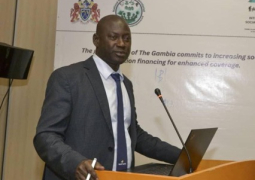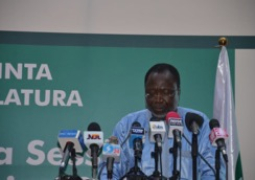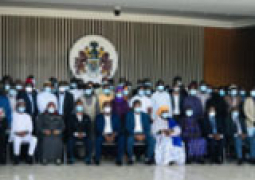
Alagie Manjang was speaking on Wednesday at the start of a two-day validation forum on the Electricity Quality of Service Regulations 2025 currently underway at Bakadaji.
He attributed that these remarkable achievements are the result of numerous electricity access projects being implemented across the country including the expansion and modernisation of electricity transmission and distribution infrastructure especially in the Greater Banjul Area.
DPS Manjang also spoke about government strides over the years towards achieving universal access to electricity in the country.
"Many of us will recall that not long ago, electricity supply particularly in the Greater Banjul Area was a persistent challenge. Today, I am pleased to report that we are firmly on track to achieve universal access to electricity in The Gambia well ahead of Sustainable Energy for All (SE4ALL) global target."
Energy, he said, is a powerful catalyst for the sustainable socio-economic development of any country.
In view of this, he said, harnessing this power effectively requires not only visionary policies, but also their timely review, regular updates and crucially, the development of robust and coherent regulatory instruments to ensure sound implementation.
"In essence, well-crafted regulations are indispensable. It serves as the bridge that translates high-level policy commitment by the government into actionable measures and tangible outcomes. It is through such regulatory frameworks that we can ensure efficient, accountable and fairness in delivery of electricity services to all Gambians."
He, however, noted that quality of services may be defined as the collective effort of service performance, which determines the degree of satisfaction of a user of the service.
"Therefore, electricity quality of services regulation is part of customer protection as it ensures that the electricity service providers as well as end-users, operate within well defined regulated parameters and rules."
Thus, he stated, the development of Electricity Quality of Service Regulations has multifaceted benefits, citing understanding the state of the electricity market; checking claims by electricity service providers as well as end-users, among a host of others.
Therefore, he commended The Gambian leader, Adama Barrow for his visionary leadership and unwavering support of their partners, whose contribution continues to play a vital role in transforming the energy landscape.
He also spoke about the high cost of electricity in The Gambia, which he said, remains a concern to government and the Ministry in particular, as it threatens the socio-economic development aspirations of the country.





